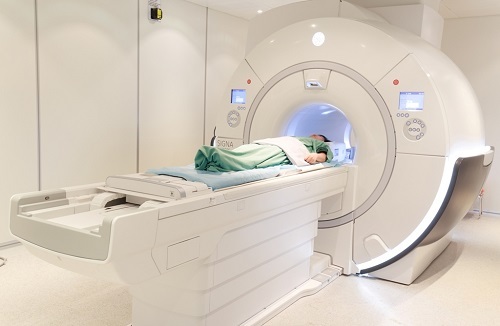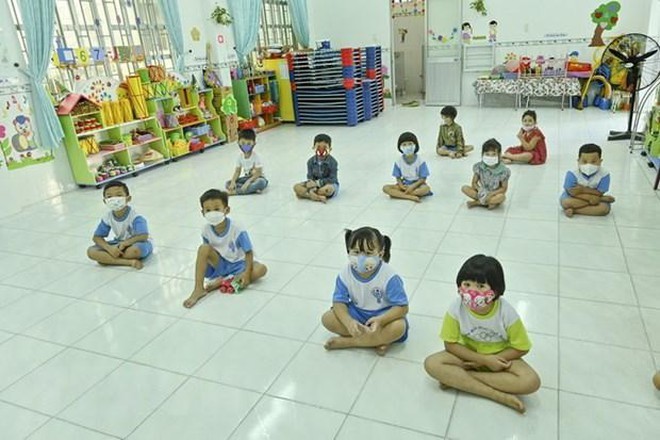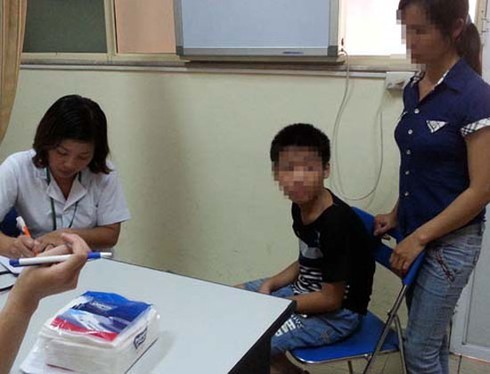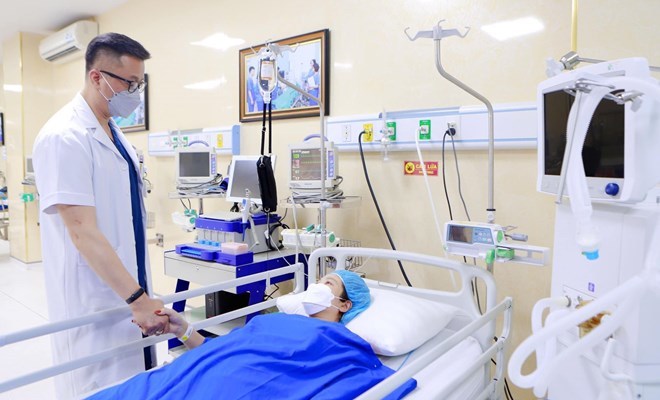Stroke screening after Covid-19: Who should do it?
03/24/2022 13:58 GMT+7
Associate Professor Thang said that only people at risk of stroke such as obesity, hypertension, diabetes, dyslipidemia, etc. need to screen for stroke and do not need to abuse expensive imaging techniques.
After hearing from friends that even healthy people can leave blood clots after Covid-19 causing myocardial infarction, stroke, and pulmonary embolism, which can quickly die, so Mr. Do Duc Tu, 44 years old, Go Vap, Ho Chi Minh City rushed to screen for sequelae of blood clots after Covid-19.
Mr. Tu said a colleague of his had previously contracted Covid-19 and recently went to a doctor to warn of a blood clot sequelae. Fortunately, early detection, doctors prescribe oral medications to avoid the risk of dangerous complications.
When Mr. Tu went for screening, the doctor ordered venography and other imaging techniques. Spending about 14 million VND but he did not find any abnormalities.
Associate Professor Nguyen Huy Thang – Head of the Department of Cerebrovascular Diseases, 115 People’s Hospital, said that there are many studies showing an association between Covid-19 and stroke. The cause of stroke in Covid-19 patients is due to an increased inflammatory response, leading to inflammation of the blood vessels. The virus causes hypercoagulability, leading to thrombus formation in the arterial, venous and organ systems. Some cases were due to retrograde thromboembolism.
 |
| Illustrated photo. |
In the post-Covid-19 period, patients have a high risk of stroke when other risk factors, such as high blood pressure, diabetes, lipid metabolism disorders, smoking, obesity…
If the patient has a mild case of Covid-19 and no other stroke risk factors, the risk of stroke will be very low. Therefore, Associate Professor Thang believes that there is no need to routinely screen for stroke.
If the patient has other associated risk factors, stroke screening should also focus on the goal of tightly controlling these risk factors. Imaging techniques should not be abused if the patient has no symptoms of stroke.
Up to this point, PGS Thang said that most people were too panicking because of the pandemic and the confusing information in the media, doctors should not have to suffer any more with post-Covid-19 “screening” packages. .
For patients who have had a stroke and are concurrently post-Covid-19 infection, Associate Professor Thang believes that the use of anticoagulants or antiplatelets should be maintained. The choice will depend on the previous stroke mechanism, should not switch to anticoagulation just because of post-Covid-19 infection.
Master, Dr. Nguyen Dung – Department of Cardiology, 108 Central Military Hospital, said that the World Health Organization (WHO) post-Covid-19 syndrome or post-Covid-19 condition occurs in people who have been infected. Covid-19 with symptoms and lasting for at least 2 months that cannot be explained by an alternative diagnosis.
This condition can cause long-term health impairment, severely impacting your ability to return to work or participate in social life. In addition to affecting mental and physical health, it can also have severe economic consequences for the patient, his family and society.
You should only go to the doctor if you have the following symptoms:
Shortness of breath: If you find it difficult to breathe, with low O2 saturation (less than 92%), you should pay attention. However, there are times when the patient is short of breath when exerting himself because he has been inactive for a long time due to the disease.
Chest pain: If chest pain is severe, especially if it persists with nausea, shortness of breath or lightheadedness: it could be symptoms of a heart attack. If you have chest pain when you breathe in, you may have pneumonia. Severe, sudden chest pain may be due to a pulmonary embolism.
Post-Covid-19 Heart Failure: Quite rare, but if you have difficulty breathing or swollen feet, you need to see a doctor to see if you have heart failure. Symptoms of heart failure include: Shortness of breath, especially on exertion; shortness of breath when lying down: fatigue; leg swelling, frequent urination at night, etc.
Even after recovering from Covid-19 with a mild course, people can still face a significantly higher risk of cardiovascular disease for up to a year, according to a new study, published in the journal Nature Medicine. after infection. Includes: cerebrovascular disorders, arrhythmia, myocarditis, ischemic heart disease, thrombosis and other cardiac dysfunction. Therefore, people who have been infected with Covid-19 should monitor their health and cardiovascular abnormalities if any.
Khanh Chi
at Blogtuan.info – Source: infonet.vietnamnet.vn – Read the original article here



